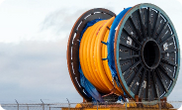Your Ultimate Home Electrical Safety Checklist

At NNC, we believe a safe home is one of the best ways to show love and care for your significant others and family members. By creating a safe and secure environment for your loved ones, you provide them with comfort and peace of mind. Therefore, we present you with this home safety checklist to ensure everyone you care about can stay happy and healthy within your home.
Though the safety of modern homes has dramatically improved compared to decades ago, following the basic rules of electrical safety is as crucial as ever as electrical hazards can lead to anything from minor issues with electricity to damage to your property, health, and even death. Luckily, maintaining electrical safety around the home is relatively easy when you know all of the basic rules. A few weeks ago, we spoke about electrical fire prevention and handling. This time, we are focusing on basic tips to keep electricity in your house safe. Our home electrical safety checklist is divided into sections into electrical cords, adapters, plugs, & outlets, lighting fixtures, electrical appliances, AFCI and GFCI, and general precautions. We advise you to keep a similar home electrical inspection checklist in your notebook or the app you have for notes. While we cover basic electrical dangers in the home, you may add your own tasks to the checklist as every home is unique.
EXTENSION CORDS, ADAPTERS, PLUGS, & OUTLETS
- Make sure that all of your cords have no signs of damage and are not frayed. Exposed wires are also a no-go. Cords that are at fault should be replaced immediately.
- Do not use extension cords for more than 30 days as they are not meant for permanent use. Contact your electrician instead of installing additional electrical outlets if you notice yourself using extension cords regularly.
- Never use extension cords with a heater or an air conditioner.
- Only use UL or CSA-ranked extension cords that have proper ratings for indoor or outdoor applications.
- Make sure that your cords do not run under the rugs and are not close to hot appliances.
- Handle your plugs properly by pulling the plug instead of the cord when unplugging.
- Do not overload your outlets with several high-voltage devices at once, as this may cause an electrical fire. Unusual sounds, tripped breakers, and slight electrical shock might be the signs of an overloaded outlet. Tripping circuits also often indicate danger. If you notice these dangerous signs, contact your electrician.
- The cables that are used in damp areas should be resistant to moisture.
- Using plug adapters in your home is not safe regardless of the circumstances.
- Keep your electrical cords, plugs, & outlets away from young children.
- Make sure that the outlets and switches are not hot when you touch them.
- Make sure that the outlets and switches are not discolored.
- If you notice an unusual smell around your plug or electrical outlet, such as the smell of burning plastic, contact the electrician immediately.
- Buy high-quality cables from trusted manufacturers and sellers, such as Nassau National Cable, when you opt to replace an electrical cord in your home. The cables must meet international and local electrical standards.
- Install cables that are appropriate for the particular use within your home. For instance, the wires in your basement should have moisture-resistant insulation, cables that connect your home appliances should be flexible, and all cables in the house should meet the requirement of not spreading fire.
- Choose the appropriately sized cables as the ones that are too small may melt and cause an electrical fire.
LIGHTING FIXTURES
- Check your lighting bulbs to make sure they are of appropriate wattage and replace them if this is not the case. High-wattage bulbs cause lighting fixtures to overheat.
- Use the lighting bulbs that are recommended for the fixture.
- Lighting outlets should not make buzzing sounds or other types of strange noises when working correctly.
- Regularly clean lighting fixtures and bulbs from dust.
ELECTRICAL APPLIANCES
- Aim to unplug all of your appliances when you are not using them.
- Do not keep working electrical appliances near water and dry your hands when you approach an appliance. For instance, do not keep kitchen appliances near the sink.
- Place heat-producing appliances like heaters and coffee makers away from flammable things like paper and plastic.
- Do not keep appliances near the oven or hob as this may damage the cords.
- Clean your oven and cooker hood at least once in six months to remove the signs of grease. Also, clean the back of your fridge from dust from time to time.
- Do not overheat your water heater. Set it at 120 degrees Fahrenheit when using it, as it is considered an optimal temperature.
- Portable heaters that you use in a home should be standardized according to UL or ATL. Non-standardized electrical heaters are likely dangerous to use.
- Never use portable heaters in areas susceptible to moisture.
- Ensure that there is enough air circulation around the devices used frequently and close to the wall, such as a refrigerator or the washing machine.
- Plug major appliances, such as heaters and refrigerators, into a separate electrical circuit.
- Immediately stop using electrical appliances if you notice electrical sparks around them.
- Consider using surge protectors to protect your devices from dangerous changes in voltage.
ARC FAULT CIRCUIT INTERRUPTERS AND GROUND FAULT CIRCUIT INTERRUPTERS
- Arc Fault Circuit Interrupters are meant to recognize arc faults and immediately close the power when they occur.
- Ground Fault Circuit Interrupters monitor the electrical flow within the circuit and shut down the power in case the electricity flowing is unusual. They prevent electrical shock from occurring.
- Ground Fault Circuit Interrupters have to be installed in bathrooms, kitchens, garages, and other areas where the water may contact the electrical current, according to the National Electrical Code's demands. Install GFCI immediately if you do not have them in the designated areas.
- Inspect your AFCI and GFCI for damage monthly.
- For enhanced safety, standard circuit breakers in the house should be replaced with AFCIs because they are better at detecting electrical dangers. In some states, such replacement is mandatory, while in others, it is recommended. Regardless of where your state falls on this scale, the installment of AFCI will benefit your home.
- AFCI and GFCI are especially critical in older homes when the danger of electrical faults, shocks, and fires is prevalent due to home design shortcuts.
OUTSIDE CONSTRUCTIONS
- All outlets located outside should have a weatherproof cover
- All garden tools should operate properly at all times. Otherwise, get them replaced.
- Corded tools should not be used anywhere near pools or other damp areas
- Extension cords used outdoors should be specifically marked for outdoor use.
- 3-prong extension cords with proper grounding are recommended for outdoor use
POOLS AND WATER
- Do not use electrical equipment near outdoor pools and spas. Any equipment that has to be used should be kept dry at all times.
- Install a GFCI on all electrical outlets near the pool to prevent electrocution.
- Use only wiring and electrical components approved near water and have them installed by a licensed electrician.
- Keep all electrical equipment, such as pool pumps and heaters, at least 10 feet away from the pool to reduce the risk of electrical shock.
- Install pool lights designed for use in wet locations and have them installed by a licensed electrician.
GENERAL SAFETY PRECAUTIONS
- Keep an ABC fire extinguisher in an easily accessible location within your home, and learn how to use it properly.
- Inspect your smoke alarms and carbon monoxide detectors every month and replace their batteries annually.
- If you have small children, consider investing in TROs- a new type of outlet designed to protect your children from electrical hazards. If not, ensure that you keep your children from electrical danger in one way or another. One way to do this is to keep plastic safety covers on your plugs and outlets.
- Ensure that the circuit breaker in the house is appropriately labeled and everyone knows how to reach it and use it.
- It is important to exercise circuit breakers periodically by turning them on and off at least three times a year for circuits that are not used quite often.
- Have your house inspected by a licensed electrician every year. Consider more regular checks in case you live in an old house.
- Regularly replace your air filters because limited airflow results in overheating the air conditioner.
- Never ignore immediate signs of electrical danger, such as sparks, electrical shock, burning smell, tripping circuits, and others discussed in these recommendations.
- Keep a home electrical inspection checklist that includes the checks you should do monthly and yearly.


















